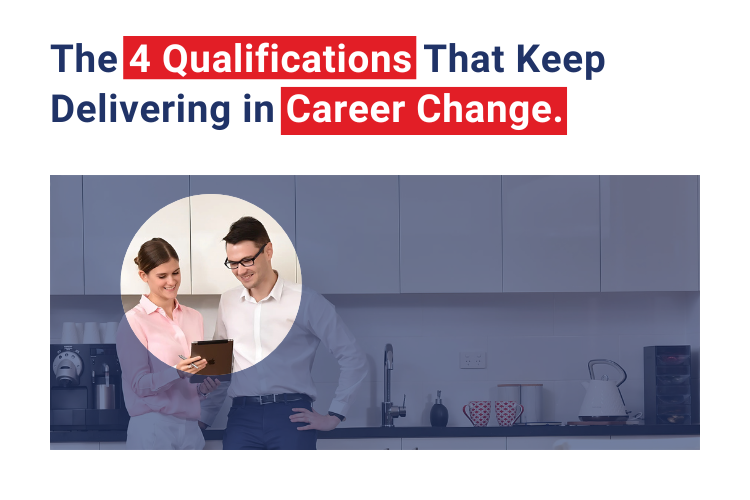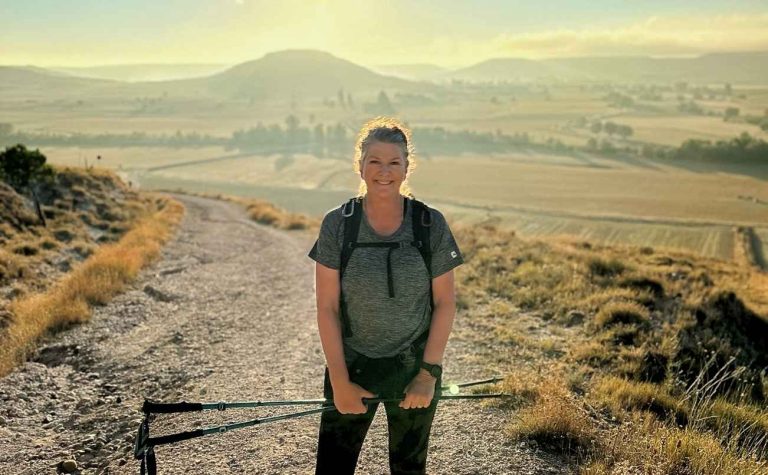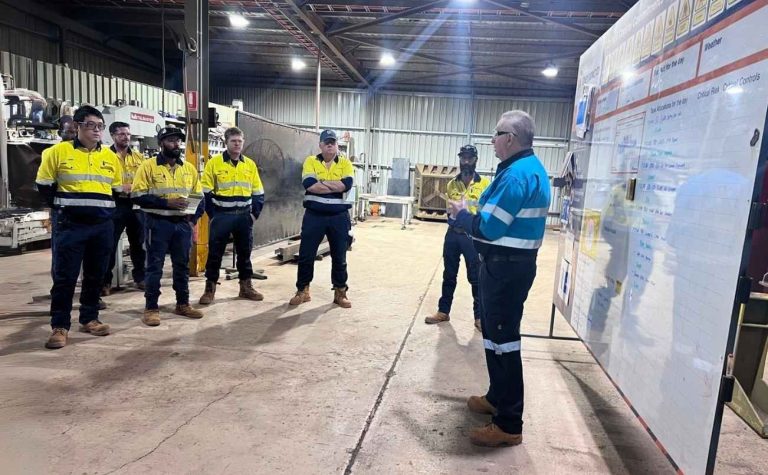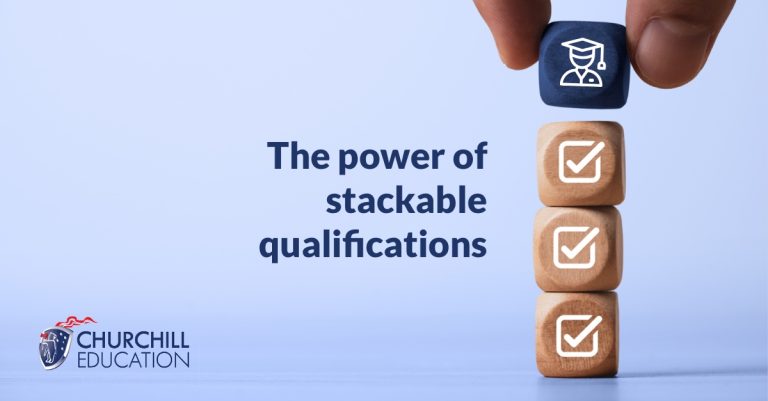The old saying, “Nothing is certain but death and taxes,” should include “change”. The need for a Plan B can come when you least expect it. Especially when it comes to your career.
When I was growing up, my mother and father taught us that hard work always pays off.
It’s still something I believe.
Now I find myself saying the same thing to our 15 year old son Declan, as we talk future careers around the dinner table.
When I was his age, I knew what I wanted to do with my life: I wanted to be a criminal barrister, just like Lorraine Bailey in Carson’s Law, a television show I had grown up watching in the early 80s.
When Randall was the same age, he knew what he wanted to do with his life too: he wanted to be a police officer, in the Queensland Police Force (because back then it was called a Force, not a Service).
We only had a Plan A – one job, one career for life.
And we were both lucky enough to spend years doing exactly what we dreamed of …. Randall as a Police Detective, and me as a Crown Prosecutor.
What we didn’t know when we were Declan’s age, was that we would need a Plan B.
What we know now is careers morph, and change is a definite. Hard work is still important, but it’s not enough. You need to be able to respond to change, step into opportunity and reinvent yourself throughout your working life.
Plan B will likely lead on to Plans C, D and E.
Sometimes Plan B is a promotion. Sometimes it is a complete career pivot of your choosing, and sometimes it is a career ending move that is beyond your control.
As a family, we have experienced all three. We both received numerous promotions that advanced our previous careers. Then for me a self-directed career pivot. I was prosecuting a lot of child sex offences whilst also raising our young children. Although there were opportunities for further promotions open to me, the job became soul destroying. Therefore I chose to leave and join Randall full-time in Churchill.
Find out what you’re eligible for
Randall on the other hand was forced to leave a career he had every intention of staying in for life, after he developed PTSD. And then his Plan B became creating Churchill Education.
During the 13 years we’ve run this business, we’ve been through some major changes. Some of them pre-emptive, and some due to market forces outside our control. And the reality is, we will constantly be faced with change and therefore we will always need to be prepared for a Plan B, C or D, as will you.
If anything the pace of change is accelerating, and if our latest federal election is anything to go by, so too is the unpredictability of the economy and the world at large.
So now more than ever it is vital that you always have a Plan B at the ready.
Here are 5 Keys to Future Proofing Your Career with Plan B
1. You may leave a job but the job never leaves you.
Each job we do in life teaches us something. We use the skills and knowledge we built up in Plan A to make us stronger in our jobs in Plan B. Whether it is project management skills, or in my case, the ability to stand comfortably in front of a room full of strangers, and tell a story after years of presenting a case to a judge and jury.
When I’m looking at a career move, I find it really useful to grab a piece of paper, then write every job I’ve ever had along the top in a separate column. Down the other side of the paper, I write the key selection criteria for the job I am looking at for my next step.
From there, I match up the required skills to my experience, jotting down examples of what I did, how I did it and why I did it.
This gives me clarity on where the strengths are in my experience and helps me figure out how best to address the gaps. Do I have any transferrable skills? Do I need to do some more learning outside of the job? Or do I just need to indicate my willingness to learn those skills and build that knowledge on the job?
2. Make sure you have an objective benchmark to prove your level of skill and knowledge.
The simplest way to do this is through qualifications that match the standard to which you were performing. If you’re considering a career change at some point in the near future we highly recommend you find out what qualifications you might be eligible for. You can apply for a free RPL assessment via the form on the side of this page.
Lately, we have been speaking with people who are calling us 6 or 7 years down the track. We can tell they were operating at a Diploma or Advanced Diploma level – management level in their previous career. But then they took a Plan B job that allowed them to switch off at the end of the day, and not feel the weight of being responsible for a team.
That’s all good, but the problem is that having stepped out of the level they were previously working at for several years, without a benchmark of ability it’s difficult to step back into a management role down the track.
Unfortunately, we can’t help them if your experience is more than 5 years out – we have to abide by ASQA rules which require a demonstration of currency to award a qualification.
If only they had put the qualification in their back pocket earlier in the game, they would be in a much stronger position now.
Once you have a qualification, you can never lose it. But if you don’t take the time now to keep your qualifications in order, you can miss out on the job you deserve and be sent back to study.
So, make it a priority to keep yourself qualification ready for that next opportunity. It is so much better to be able to pass on a position because you made that decision, instead of being passed over for a position.
3. Keep samples of your work.
The work you are doing is a resource – for you and for your company.
Ever found yourself wishing you had kept a copy of some work you’ve done because now you have to do it all again from scratch?
There is no need to reinvent the wheel.
In the digital age, it is so easy to keep a portfolio with samples of your work.
Some people carry it around on a USB – which is risky as it can be easily misplaced. Others grab some space in the Cloud.
As your skills and knowledge grow, you will continue to get better and better at what you do – and the samples in your portfolio will show that.
Always respect the privacy of a document, but there is no reason you can’t desensitise it and use it as a base for work in Plan B.
Plus, these samples have the added bonus of always keeping you ready to upgrade your qualifications.
You can even upload it periodically to our Evidence Portfolio – through a unique and secure link we can create for you.
Not only is this a safe depository for your documents, it also means wherever you are, we can give you the latest update on where you are tracking against particular qualifications. And you can also store copies of any qualification certificates you achieve in this same folder for when you need them.
4. Keep Connected to your Colleagues
There is always at least one stand out person in every job you do. Keep connected – these are the people you respect and learn from and with.
It is amazing how useful it can be to pick up the phone or shoot an email to your past colleagues to ask a question, organise an introduction or share an opportunity.
Find out what you’re eligible for
Over the last week, I have been working through resume reviews for our Alumni – one of the bonuses for our graduates of staying connected to a community and network.
5. Get clear about what matters to you in a role.
The priorities for a first career, Plan A, are often really different than the priorities you will look for in Plan B.
People change, life changes. Families arrive, families grow. Industries change, technology grows. Health challenges can arrive, interests can vary.
Take the time to think about what your priorities are right now and then line yourself up for a job that will best meet those priorities.
For many people approaching an end of year, whether that be end of financial year when your group certificate arrives or the end of calendar year, it is a good time to look at where you are at now and where you want to be.
It may be time for Plan B. Perhaps that means applying for a promotion, or a sideways shift in your current place of employment. Or it might mean looking for a new job in the same industry, or a completely different industry.
As always, reach out if we can be of assistance along the way. Plan Bs through Zs are something we specialise in!
Tricia








